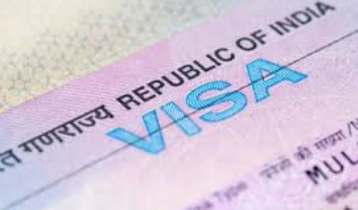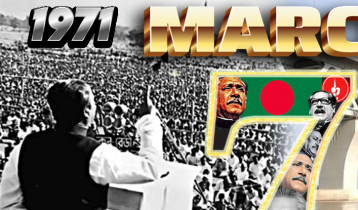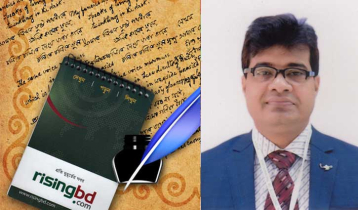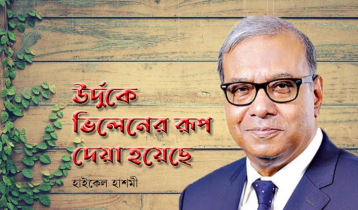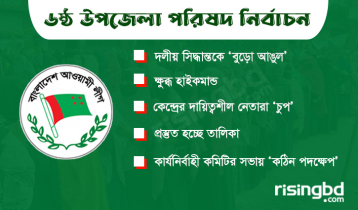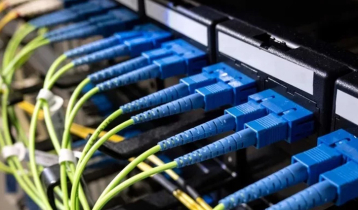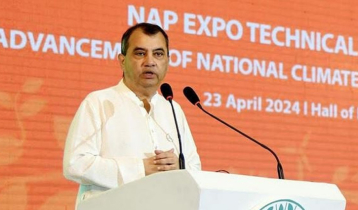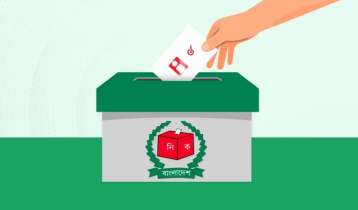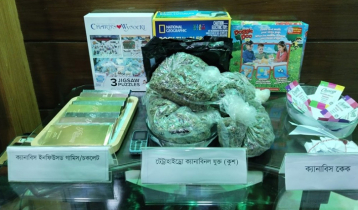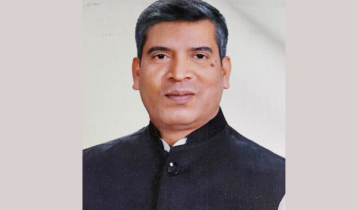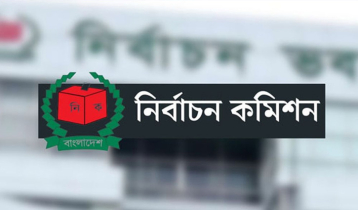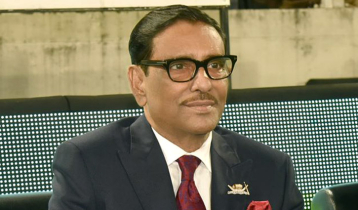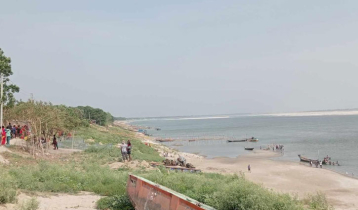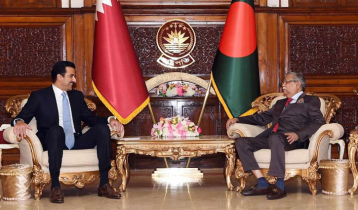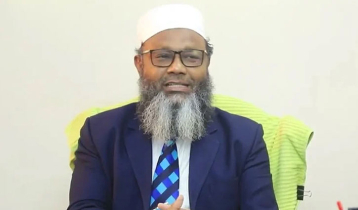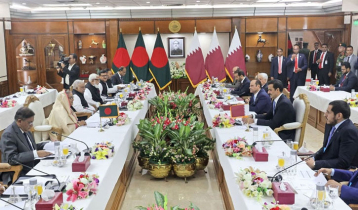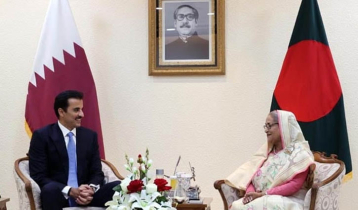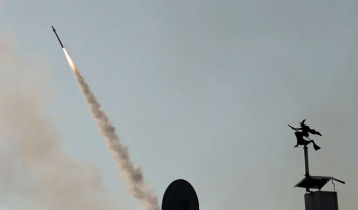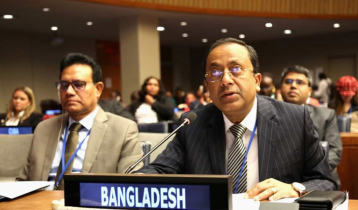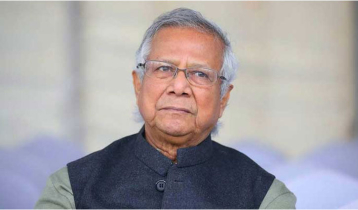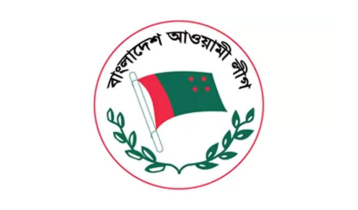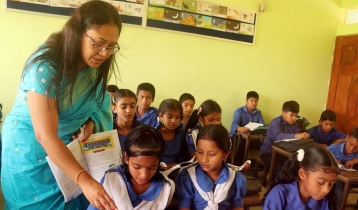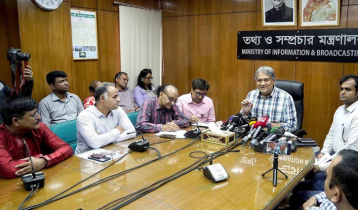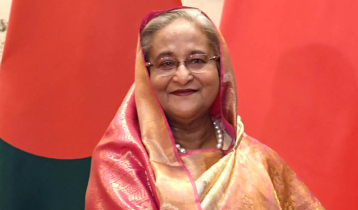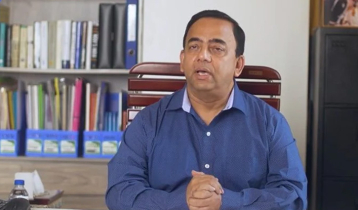I’m eager to behold completion of Digital Bangladesh: Mustafa Jabbar
Bashir Miah || risingbd.com
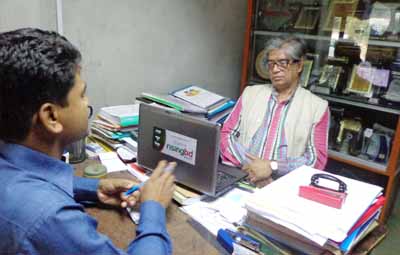
Niaz Mahmud interviewing Mustafa Jabbar
DHAKA, Dec 16: Mustafa Jabbar, pioneer of Bangla software in the country, started his professional career as a journalist. Due to his profession, Jabbar realised the necessity of computer typing in Bangla in late eighties of the 20th century.
Implementing the experience of publishing of desktop, he published Bangla newspaper using computer typing in 1987. Then the Bangla typing in computer was very difficult and he made Bangla keyboard ‘Bijoy’ in 1987. Now around 99 percent of Bangla users work in computer with Bijoy keyboard.
Though the Bijoy keyboard users are increasing in the country day by bay, many problems including correction of spelling and use of dictionary in Bangla are still absent in computer. The government has to play vital role in this context, said Mustafa Jabbar in an interview with the risingbd.com – the emerging news portal of the country.
The pioneer of Bangla software is not only involved in IT sector, he is also working hard for expansion of information and technology (IT) education in the country. Mustafa Jabbar is one of the key persons of Digital Bangladesh. His dream is to behold the full implementation of Digital Bangladesh.
Mustafa Jabbar took part in the War of Liberation in 1971. He is the author of a good number of books on IT and general education. He has been honoured by achieving over 20 national and international awards and recogniations for his contribution.
During the interview with risingbd.com at the Ananda Computers’ head office in the capital on Saturday, Mustafa Jabbar talked about many things on Digital Bangladesh and the country’s computer business. Our Economic Correspondent Niaz Mahmud Sohel interviewed him.
risingbd: How did idea of using Bangla in computer come in your mind?
Mustafa Jabbar (MJ): The idea first came in my mind in 1987. I was then publishing a magazine ‘Saptahik Anandapatra’. Typing was very hard then and operator had to use 188 keys for typing. The typing was very lengthy and a pressure for brain. By this time, I got an idea and thought how to type Bangla letters in English keyboard. My research has started from then.
risingbd: When and how your research saw the light of success?
MJ: In December 1988, I made a three-kilobyte programme named BKBD by Debendra Joshi in New Delhi. Almost all Bangla letters could be written using normal and shift through the programme, which was written by assembly language. The programme was commercially launched naming ‘Bijoy’ on December 16 in the same year. At that time, Bijoy could be used in Mac SE, Mac+512 KE and Mac-2 computers. The programme was based on Indian Bangla. That’s why we faced problems to write joint letters through Bijoy. So, we thought to make programme in our own home and we made new Bijoy using our own programming in 1992. Our journey of success started from then.
risingbd: Why did you name the software ‘Bijoy’? Tell us about its background.
MJ: ‘Bijoy’ is symbol of country’s independence and victory of its people. Bangladesh achieved independence through the surrender of Pakistani forces at 4:31pm on December 16, 1971. Bengalis tasted the flavor of freedom -- it is ‘Bijoy’. Bijoy’ was named in such way.
risingbd: How many years did it take to spread ‘Bijoy’ keyboard?
MJ: The government had tried to create obstacles in implementing ‘Bijoy’ keyboard for ten years. The then BNP-led government had taken initiatives not to standardize the newly-made software in 2003. On the other hand, bureaucrats of the present government had taken initiatives to type Bangla in Roman letters instead of ‘Bijoy’ keyboard. Breaking all barriers, the progress of ‘Bijoy’ software is continuing.
risingbd: Who are working with you in inventing and developing ‘Bijoy’ software?
MJ: For programming, I got cooperation from Debendra Joshi of India, and Golam Faruk Ahmed, Quamruzzaman, Niaz Mohammad, Monirul Abedin, Rifat-un-Nabi, Arpita Urmi, Shovan, Tahmina Taha and Mainuddin Saleh from Bangladesh side. On the other hand, Hamidul Islam, Shib Narayan Dash, Ujjal Kumar Mojumder, Maqsud Ahmed and Mojibur Rahman helped me for typography. Their contribution for development of ‘Bijoy’ software is praiseworthy.
risingbd: How is the computer business in this existing political impasse?
MJ: A negative impact has fallen on computer business like other businesses in the existing political deadlock of the country. No new entrepreneur is coming in this sector. People’s income has been decreasing in this present situation. So, the selling of computer has come down. The fall in buying and selling of computer and its accessories reaches around 80 percent in this context.
risingbd: How did you take part in the War of Liberation? Tell us about the situation of that time.
MJ: I was a degree level student of Bangla Language and Literature department at University of Dhaka in 1971. I took part in the War of Liberation in the same year. Though an examination had been taken in 1971 but the authority cancelled it later. I achieved my Bachelor degree with second class in 1972. I completed my Master’s degree with second class from the same department and same university. I was deputy commander of Mujib Bahini in Thaliajuri thana of Sunamganj district. Beside my village, 161 Rajakars surrendered to my Bahini in Shalla upazila of the district during the War of Liberation in 1971 – the memorable incident of my life.
risingbd: The use of internet charge is very costly in Bangladesh. Has Bangladesh Computer Samity taken any initiative to reduce the cost of internet charge for expanding the IT?
MJ: It should be recognised in the country’s Constitution to get internet service for citizen as a fundamental right. The cost of internet charge should be lower. The monthly charge for Bandwith connection of one megabyte per second (MBPS) should not be more than Tk 500. The amount of data could not be a condition for putting charge for internet. The government is selling internet Bandwith and the internet service provider (ISP) companies purchase internet service at the same but they do not maintain the same in selling, they take remarkable profit and make barrier in expansion of internet. We will talk to concerned ministry and Prime Minister in this context. I hope that internet charge will come down in near future.
risingbd: A complexity has created on the election of Bangladesh Computer Samity. What is the cause of it?
MJ: The election of Bangladesh Computer Samity has been suspended due to the existing political unrest of the country. The election schedule will be announced, after returning normal situation of the country. The election board has suspended the election regarding the demand of the voters. There is no confusion in this connection.
risingbd: What is your future plan in this connection?
MJ: We started a movement for tax and VAT-free importation of computer parts and became successful. We want to launch digital system in all sectors including the country’s education system. I have given the idea of Digital Bangladesh to the government. The government is working to implement it. I also want to see the implementation of Digital Bangladesh.
risingbd: Thank you for giving us time.
MJ: Thanks to you and risingbd family.
risingbd/BHM/Augustin Sujan
risingbd.com



